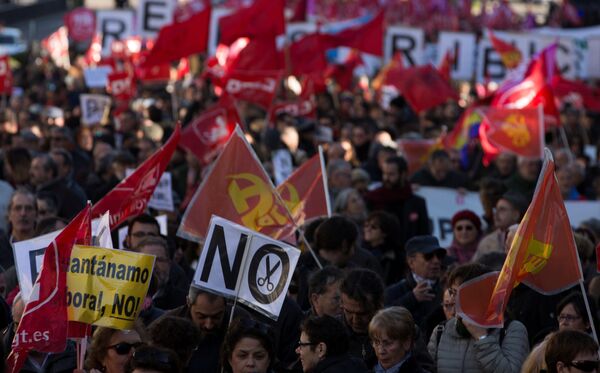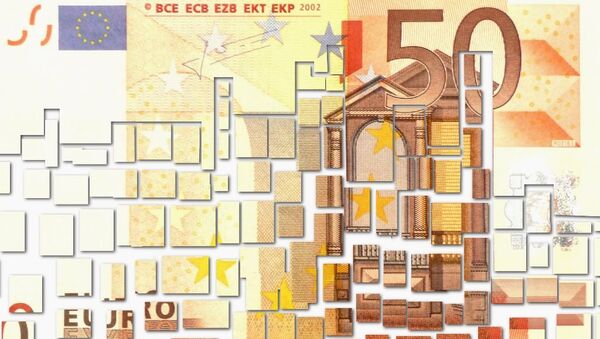However, the IMF has pointed to deeper problems within the Eurozone. Its latest report says many countries are running "excessive deficits" — spending more than they are earning — and one of the biggest challenges to the eurozone "are rooted in distorted political incentives" at both national and Eurozone levels.
One of the central principles of the Stability and Growth Pact (SGP) is that countries must not run an annual budget deficit — the difference between its income and its spending each year — of more than three percent of its GDP.
Both Spain and Portugal are in breach of the SGP, triggering the warning from the Commission, which should have imposed fines on both countries for breaking the rules of the common currency, but declined to over fears it would drive up anti-EU sentiment in both countries.

Taken together with the woes over the Greek third bailout — the subject itself of disagreement between the IMF and the Eurozone — the breaches are a further sign of the dysfunctionality of the single currency, because of a north-south divide in the economies of the member states. For the SGP to work, all euro member states must have similar fiscal policies and economic cycles — which they patently don't have.
Enforcement Politics
At the height of the sovereign debt crisis of 2008-9, Greece, Portugal, Ireland, Spain and Cyprus were unable to repay or refinance their government debt or to bail out over-indebted banks without the assistance of third parties like other Eurozone countries, the European Central Bank (ECB), or the IMF — otherwise known as the Troika.
One of the fundamental issues of sovereign debt crisis is that — previously, when the countries all had their own currencies — the governments would have devalued the currency to recover the situation. With a shared currency, they were unable to adopt that course of action.
The IMF also says that oversight of the Eurozone is too complicated and political. The responsibility for enforcement is shared between the European Commission and the Economic and Financial Affairs Council (ECOFIN) — the finance ministers of the Eurozone.
Headline inflation is up but still no sign of a pick-up in core #Eurozone #ECB #Inflation https://t.co/kV7wOtiRSq pic.twitter.com/eaCwFRU98i
— PIMCO (@PIMCO) 31 January 2017
The European Commission has the right and duty to monitor implementation of the SGP without having full power to take action in cases of noncompliance because ECOFIN has the final word on monitoring and enforcement decisions, the report says.
"This incomplete separation of powers between the two entities has long been seen as a weakness of the SGP for at least two reasons. First, the ECOFIN gathers officials responsible to their own countries' constituencies and with the mandate of advancing national interests. As a result, some have argued that the enforcement of the SGP has not been evenhanded, with preferential treatment granted to larger countries holding more voting rights.
"Second, ECOFIN members may have incentives to be lenient and avoid actions that are politically costly for other members because they might find themselves in a position of fiscal distress in the future," the IMF report states.



